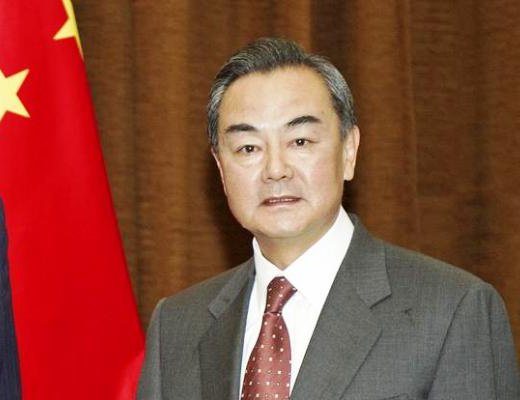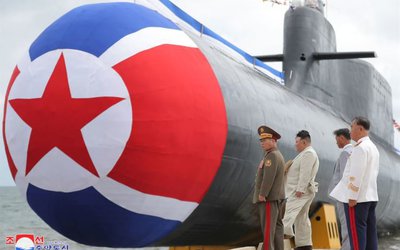
Nepal and China established their diplomatic relations in 1955. Nepal was in a period of political chaos and instability under an interim constitution then. Sixty years later, the situation is nearly the same. Nepal is under a republican set-up, in a phase of another interim constitution, with political chaos and instability ruling supreme.
For Chinese mandarins – who hold the view that politically stable and economic prosperous Nepal is a prerequisite to guarantee security in their bordering areas- their quest to see a stable Nepal seems still distant for being realised.
As China remains distant observer of Nepal's internal political matters, it has been supporting the forces of stability all the time. Communist China, without any ideological closeness, supported the traditional monarchy as a factor of stability.
Although Nepal's overall political set-up is dominated by communist leaning ideologies, which holds sway over 60 percent seats in the Legislature, China has maintained good relations with liberal democratic Nepali Congress Party. China does not have any favorite or choice in Nepalese politics as mandarins back the party in power that can guarantee stability in Nepal.
At one time, UCPN-Maoist, which launched a violent insurgency in Nepal, used to be a blue boy for the Indian establishment. Soon after the party entered in the mainstream politics, the Chinese embraced them.
Just a few days before the visit of Chinese Foreign Minister Wang Yi, China offered a broader package for economic support to Nepal. The Eleventh Session of Nepal–China Joint Economic and Trade Committee reviewed the development of bilateral trade, economic and technical assistance and economic cooperation between Nepal and China in the recent years.
During the session held in the Ministry of Commerce of the People’s Republic of China in Beijing on 17 -18 December, both sides expressed satisfaction on the accomplishments achieved during the period and gave more emphasis on enhancing level of cooperation to further augment bilateral trade and economic cooperation between the two countries, the Finance Ministry said.
At the end of the meeting, the two signed an MoU on Jointly Promoting the Silk Road Economic Belt under the Framework of China – Nepal Joint Committee on Economic and Trade Cooperation and exchanged letters for providing a batch of living materials under the grant assistance for the northern hilly region of Nepal; and construction of two schools in Lamjung and Sindhupalchowk.
The Nepalese delegation was led by finance secretary Suman Prasad Sharma and the Chinese side was headed by Ms Gao Yin, the Vice Minister for Commerce of PR China.
The Nepalese side requested for more Chinese investment in Nepal in prioritized sectors and more concession to improve Nepalese export to China as to reduce the growing trade deficit faced by Nepal.
China increased grant assistance over 400 percent, and exempted duty from many Nepalese products to increase Nepal's export, with promise for more investments in infrastructure sectors including road and hydropower. During the meeting, China declared to link Kerung, Nepal-China border point, by rail ways.
As interparty dispute among Nepal's political parties is growing, the upcoming visit of Chinese Foreign Minister Wang Yi is very significant as he may suggest Nepalese political leaders to unite for stability and constitution.
RPP-Nepal leader Kamal Thapa, Nepal's pro-Hindu leader, has recently warned Nepal’s western friends and neighbors not to get involved in the constitutional debate. At a time when Nepal needs political harmony to bring the constitution, China’s suggestions would be meaningful and appropriate.
China's concerns with its southern neighbor are for seeing political stability here. In the last sixty years, Nepal-China relations have passed through different constitutions and four different systems, including the period of first interim constitution, brief experiment of multi-party democracy with 1959 constitution, then with guided Panchayat System under the Constitution of Nepal 1961, period of constitutional monarchy and current republican set-up under interim constitution. What has always been at issue in Nepal is political stability.
Although there is uncertainty about the promulgation of new Constitution, Wang is likely to talk about prospective higher-level visit from China to Nepal — at the level of President or Premier— in the near future as the two neighbors are celebrating the Golden Jubilee of diplomatic relations next year.
“We can expect a higher-level visit from China in the near future as the visit of Foreign Minister Wang would pave the way for the same,” said Nepal’s Ambassador to China Mahesh Maskey. Diplomatic sources said Chinese President Xi Jinping could visit Nepal as early as February.
The Chinese foreign minister will call on President Ram Baran Yadav and Prime Minister Koirala and hold bilateral talks with his Nepali counterpart Mahendra Bahadur Pandey on December 26.
“The entire gamut of bilateral issues, including trade and investment, tourism, culture and assistance will be discussed,” said Joint Secretary Jhabindra Aryal, who heads North-East Asia Division at the Ministry of Foreign Affairs.
Whether there is stability or instability, China has a role to move its diplomacy in Nepal. As Confucius says one cannot choose the neighbors but will have to live with them, mandarins have learned the art to live with Nepal and support Nepal’s path of development all situations.

Keshab Poudel
Poudel is the editor of New Spotlight Magazine.
- CLA: Samriddhi For Skill Development
- Apr 23, 2024
- ECONOMY: Growth At 3.3
- Apr 16, 2024
- DPM’s SHRESTHA’S CHINA VISIT High Profile, Low Key
- Apr 14, 2024
- Maha Kumbha In Barahkshetra: A Sacred Festival In Sacred Koshi (Kaushiki) River
- Apr 09, 2024
- LOSS AND DAMAGE: Upper Tamakoshi A Case
- Apr 02, 2024















